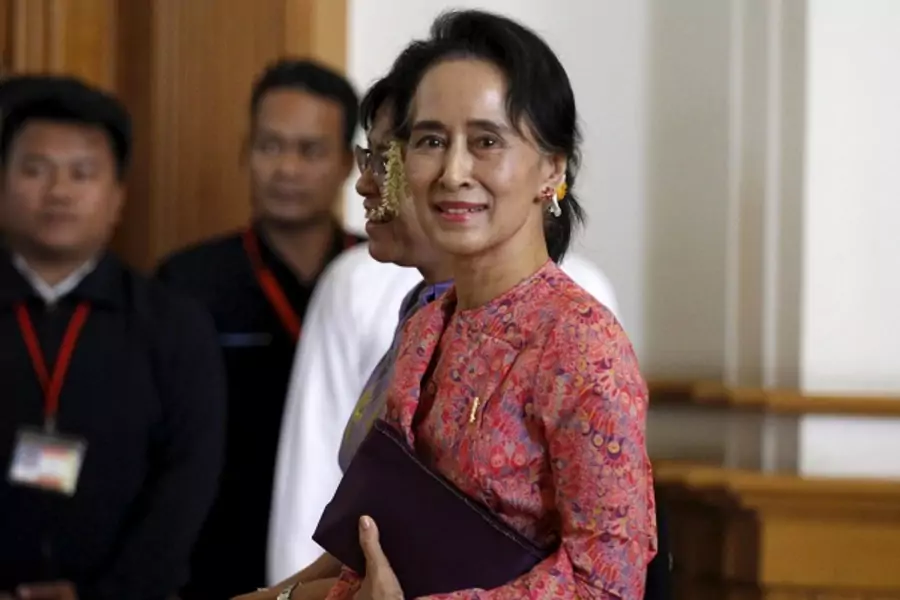Women Around the World: This Week

More on:
Welcome to “Women Around the World: This Week,” a series that highlights noteworthy news related to women and U.S. foreign policy. This week’s post, covering February 5 to February 11, was compiled by Becky Allen, Dara Jackson-Garrett, and Alexandra Eterno.
Aung San Suu Kyi may assume presidency
Myanmar may see its first woman president following “positive” talks between the country’s military chief and Aung San Suu Kyi, a Nobel Peace? Prize winner and leader of Myanmar’s National League for Democracy (NLD). The NLD already won national elections by a landslide in November, bringing an end to five decades of military rule. However, Suu Kyi is currently constitutionally barred from assuming the presidency due to a provision prohibiting anyone with a foreign spouse or child from serving as president. To overturn this restriction, the NLD must secure a two-thirds majority vote in parliament; this requires consent by the military, which still holds twenty-five percent of parliamentary seats. While members of the NLD have expressed optimism about securing this change, the outcome remains uncertain.
Women now represent one-third of UAE cabinet
The newly appointed UAE cabinet includes five women, bringing the total number of women in the twenty-nine member cabinet to a record of eight. Shamma al Mazrui, the twenty-two year old Minister of State for Youth Affairs, will become the youngest minister in the world; she will also lead the UAE Youth National Council. As part of the cabinet shakeup, the government created new ministries for Tolerance, the Future, Youth, Happiness, and Climate Change, and added two new ministers to assist with education. This shift toward youth and gender equality is part of the largest structural change in the country’s history, suggesting a new future for the UAE government.
Surge in teenage pregnancy tied to Ebola outbreak
Several West African countries, including Sierra Leone, Liberia, and Guinea, experienced a dramatic increase in sexual violence against women during the 2014 Ebola epidemic, causing the number of teen pregnancies to rise in its aftermath. While precise data are difficult to obtain due to stigmatization and underreporting, a study by the United Nations Development Program indicates that the number of teen pregnancies in Sierra Leone increased by as much as sixty-five percent. Globally, complications during pregnancy and childbirth are the second leading cause of death for girls ages fifteen to nineteen. When a girl becomes pregnant she is more likely to end her education, her job prospects decrease, and her health can suffer. While Ebola has all but dissipated in West Africa, with Sierra Leone discharging its last patient earlier this week, the effects of the surge in sexual violence and teen pregnancy during the Ebola epidemic will be long term.
More on:
 Online Store
Online Store